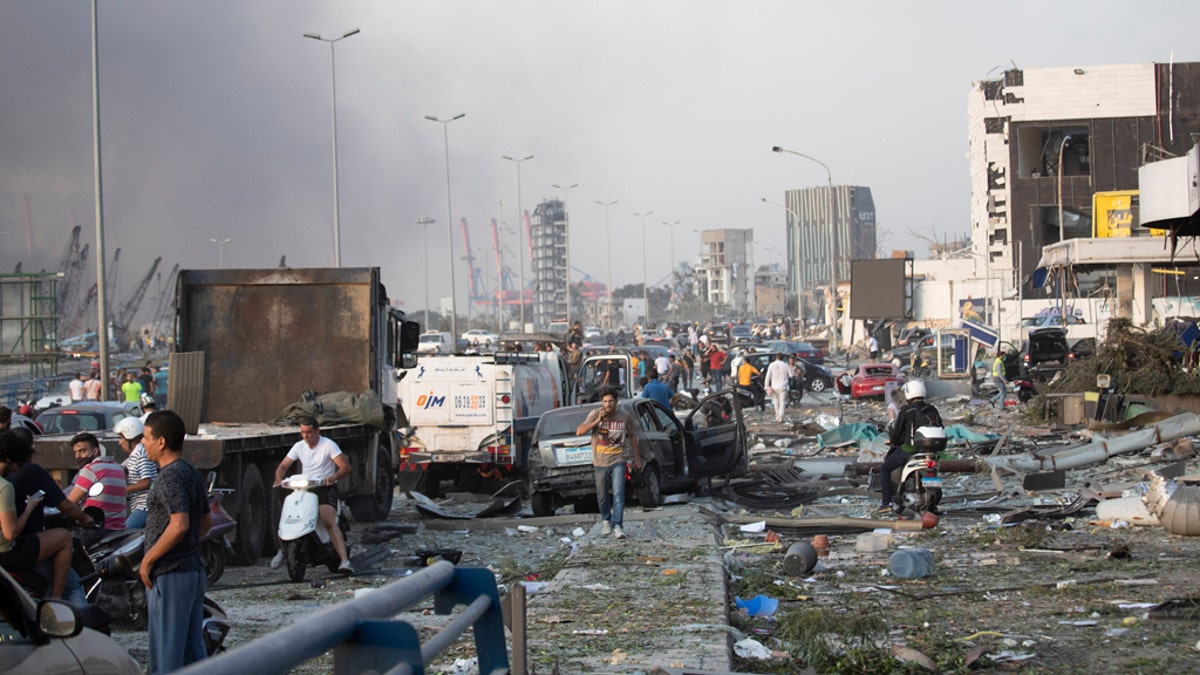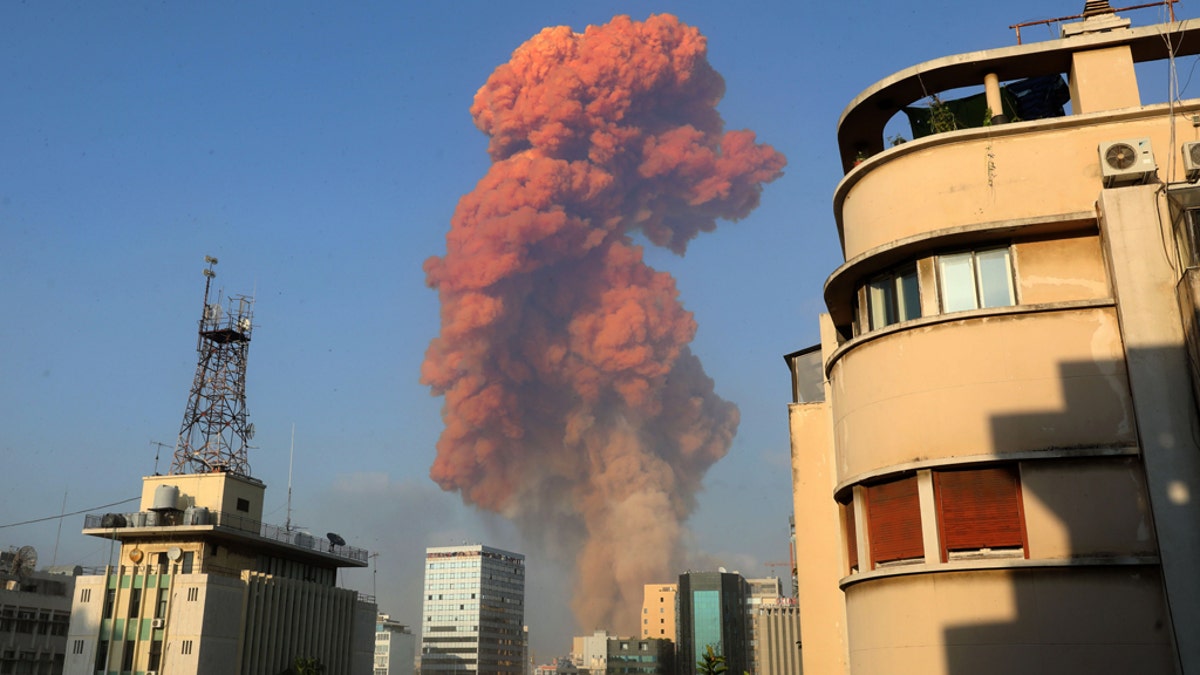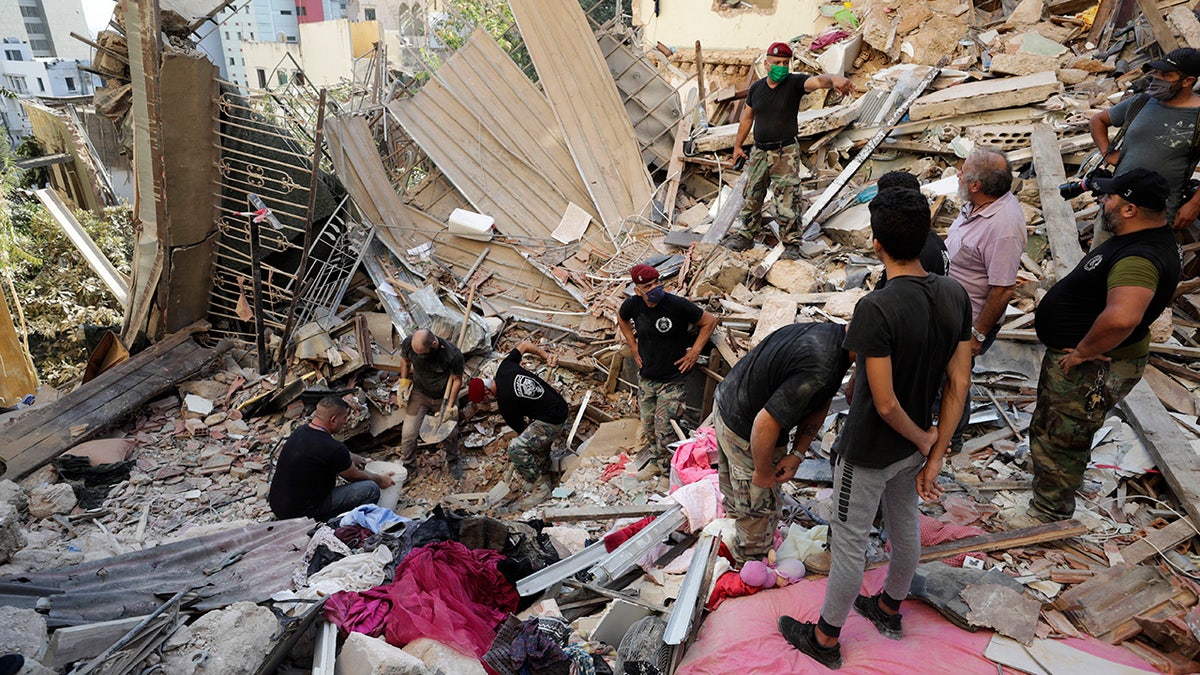At least 100 dead, 4,000 injured in Lebanon warehouse explosion
Rescue crews are searching the rubble for survivors as investigators probe the cause of the Beirut blast involving a chemical used in fertilizer.
Rescuers on Wednesday are working frantically to search for survivors in Beirut a day after a massive explosion rocked the Lebanese capital, leaving at least 100 dead and some 4,000 injured.
Lebanon's Health Minister Hamad Hassan told reporters outside a hospital that the death toll will likely continue to rise, as hundreds of people have been reported missing by their families and other loved ones.
The massive blast witnessed on Tuesday was likely caused by the detonation of more than 2,700 tons of ammonium nitrate that had been stored in a warehouse at the dock in Beirut’s port ever since it was confiscated from a cargo ship in 2014, Lebanese Interior Minister Mohammed Fahmi told local media.
TRUMP SAYS LEBANESE EXPLOSION CAUSED BY A BOMB OF SOME KIND
Though the blast remains under investigation, Lebanese officials believe that a fire engulfed what initially appeared to be fireworks at a warehouse – igniting the explosion that leveled most of the port, blew out windows and collapsed balconies and roofs miles from its epicenter and sent out a shockwave heard from as far away as Cyprus. What initially started the fire at the port remains unclear.

People evacuate wounded after a massive explosion in Beirut, Lebanon, Tuesday, Aug. 4, 2020. (AP Photo/Hassan Ammar)
But President Trump on Tuesday said that U.S. military generals have told him that they “seem to feel” the massive explosion was a “terrible attack” likely caused by a bomb. However, multiple U.S. officials told Fox News so far no evidence suggests that is true.
“It’s still too early,” one official said, who like others declined to be identified because he was not authorized to speak on the record.
Meanwhile, multiple sources in the region have told Fox News that the port of Beirut is under the unofficial control of Hezbollah – though whether organized crime is to be blamed for negligence in storing potentially explosive material, or if the blast seen Tuesday was a result of an intentional act of terrorism, remains too early to call.
As the Middle Eastern country observes a day of mourning, the U.K. and France are expected to send in search-and-rescue teams to help sift through the extensive damage, Sky News reported. Hassan said he was coordinating an emergency plan with Qatar, Iran, Kuwait, Oman, and Jordan to construct between six and eight field hospitals in the city.
The Lebanese Red Cross tweeted Wednesday it would set up shelters and supply food and hygiene kits for some 1,000 families for 72 hours. The ride-sharing app Careem, which is a subsidiary of Uber, is offering free rides to anyone traveling to and from medical centers and hospitals to donate blood.

A large explosion rocked the Lebanese capital Beirut on Aug. 4. The blast, which rattled entire buildings and broke glass, was felt in several parts of the city. (Photo by Anwar Amro/AFP via Getty Images)
In a televised address on Wednesday, Lebanon's President Michel Aoun ramped up calls for the international community to help with the humanitarian crisis in Beirut.
International troops serving in the United Nations Interim Force in Lebanon were among those hurt by the blast, including at least 21 members of Bangladesh’s Navy. One Italian soldier was also injured. Bangladesh has been working in Lebanon since 2010 to deter illegal arms and ammunition sales. Italy is the second-largest contributor to U.N.’s peacekeeping efforts in Lebanon, second only to Indonesia.
A small number of employees at the U.K. Embassy in Beirut have sustained injuries that are not life-threatening, a Foreign Office spokesperson told Sky News. French President Emmanuel Macron is expected to visit Lebanon on Thursday.
Beirut governor Marwan Abboud told reporters on Wednesday that the massive explosion in the Lebanese capital has resulted in an estimated $3 to 5 billion worth of damage. Pope Francis has called on the globe to pray for the victims and their families in Beirut.

Lebanese soldiers search for survivors after a massive explosion in Beirut, Lebanon, Wednesday, Aug. 5, 2020. The explosion flattened much of a port and damaged buildings across Beirut, sending a giant mushroom cloud into the sky.(AP Photo/Hassan Ammar)
Online videos of the disaster's initial moments show sparks and lights inside the smoke rising from the blaze, just prior to the massive blast. The white cloud that accompanied the explosion appeared to be a condensation cloud, often common in massive explosions in humid conditions that can follow the shock waves of an explosion, experts told the Associated Press. Orange clouds also followed the blast, likely from toxic nitrogen dioxide gas that's released after an explosion involving nitrates.
CLICK HERE TO GET THE FOX NEWS APP
Experts typically determine the power of the blast by measuring the crater left behind, which appeared massive in aerial footage shot on Wednesday morning by the AP. The Beirut blast, based on the crater and glass windows being blown out a distance away, exploded with the force equivalent to detonating at least 2.2 kilotons of TNT, said Sim Tack, an analyst and weapons expert at the Texas-based private intelligence firm Stratfor.
Fox News' Lucas Tomlinson and Hollie McKay and the Associated Press contributed to this report.









































